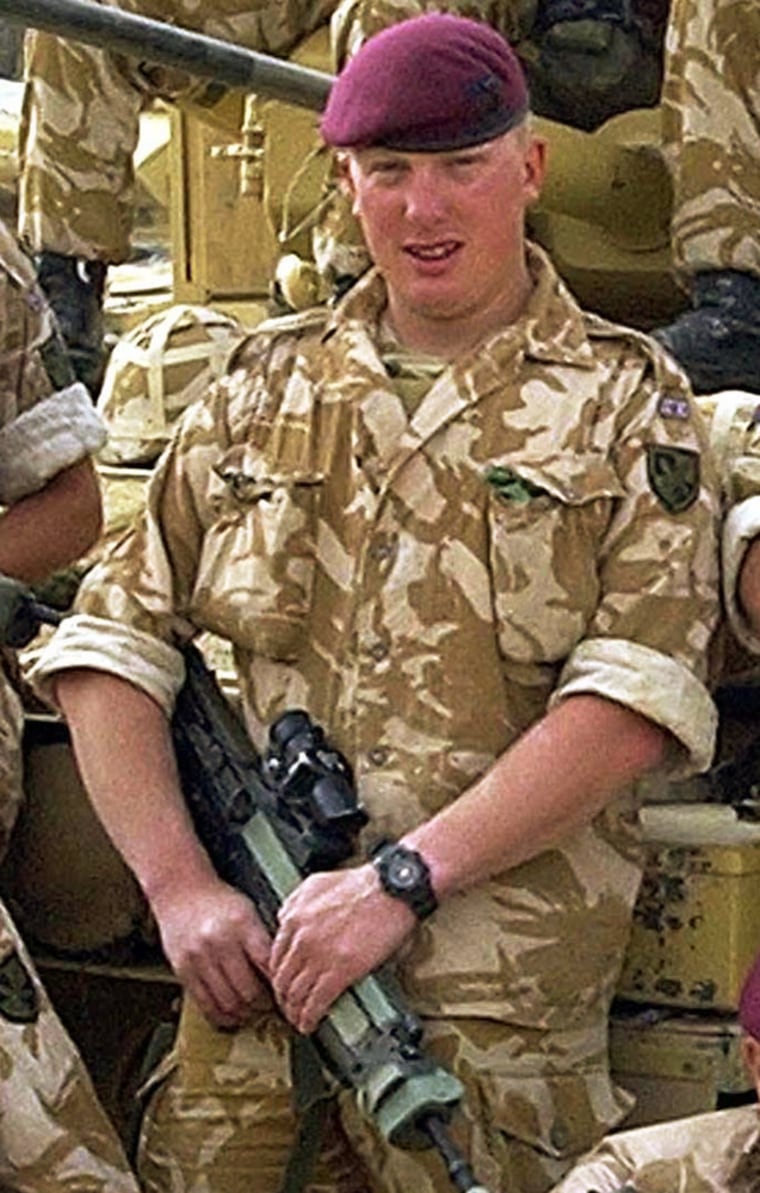A coroner conducting an inquest into a U.S. “friendly fire” attack that killed a British soldier during the Iraq war said Friday the death was entirely avoidable.
Oxfordshire Assistant Deputy Coroner Andrew Walker also criticized the U.S. military for failing to cooperate with his investigation into the incident.
“I believe that the full facts have not yet come to light,” Walker said as he began reading his verdict about whether the pilots of a U.S. A-10 “Tank-buster” plane unlawfully killed 25-year-old Lance Cpl. Matty Hull in an attack on his armored vehicle convoy in southern Iraq on March 28, 2003.
Four other British soldiers were wounded.
The coroner’s verdict is not binding on the United States, which is not subject to British law.
Appeal for full report
On Thursday, Hull’s widow, Susan, appealed to President Bush to release the full text of a military report on the incident.
She said 11 lines of the U.S. military’s Friendly Fire Investigation Board report into the incident had been blacked out in a copy supplied to the inquest.
“We have 1,110 lines of evidence from this document — but 11 are blanked out,” she said, flanked by her husband’s parents and sister outside Oxford’s Old Assizes courthouse.
“To President Bush and the U.S. government — we implore you to release the 11 lines and let the coroner have these today, so that our family can feel more satisfied with the transparency of this inquest,” she said.
The Hull family says the deleted lines relate to an interview with the ground controller — code-named Manila Hotel — in charge of the two A-10 planes that attacked Hull’s convoy.
Staff Cpl. Stuart Matthews, who was serving as a British Forward Air Controller with coalition ground troops in the area of the attack, told Walker that Manila Hotel had not given permission to open fire on the British tanks, which the pilots had mistaken for Iraqi vehicles.
But the Hull family believes that questions he was asked about communications and procedure during the incident have been censored.
U.S. military repeatedly criticized
The coroner and the British government have repeatedly criticized the U.S. military for failing to cooperate with the inquest. U.S. officials declined to send the pilots involved to give evidence and refused to release a cockpit recording of the attack.
The recording was eventually given to the coroner after it was leaked to a British newspaper and broadcast widely on television.
In the tape, one U.S. pilot says, “We’re in jail dude,” after realizing his plane’s attack was a mistake. The other pilot cries and says: “God damn it.”
The pilots from the 190th Fighter Squadron of the Idaho Air National Guard said they could see orange panels on top of the armored vehicles, which were used to identify them as coalition forces. They apparently mistakenly decided the panels were Iraqi rocket launchers.
Geraldine McCool, a lawyer for the Hull family, said the coroner had asked for other evidence, including details of the pilots’ training hours and a copy of the U.S. rules of engagement. None of it had been supplied, she said.
Walker has called the lack of U.S. cooperation in the inquest “appalling.”
